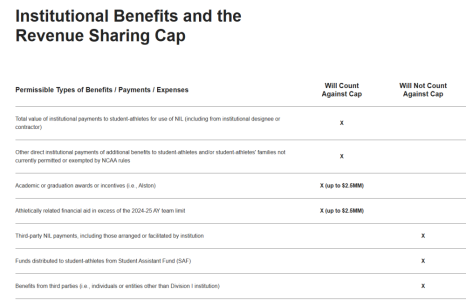37620VOL
Barely-Known Member
- Joined
- Jan 15, 2007
- Messages
- 7,724
- Likes
- 15,983
The Boo and Nico matters are bringing this question to mind. How are collectives and similar entities protecting themselves in these deals? Are they paid out over time, similar to a construction contract? Are there clawback provisions for front-loaded deals? How are deals structured so that a player has to stay at a certain school to get paid?






